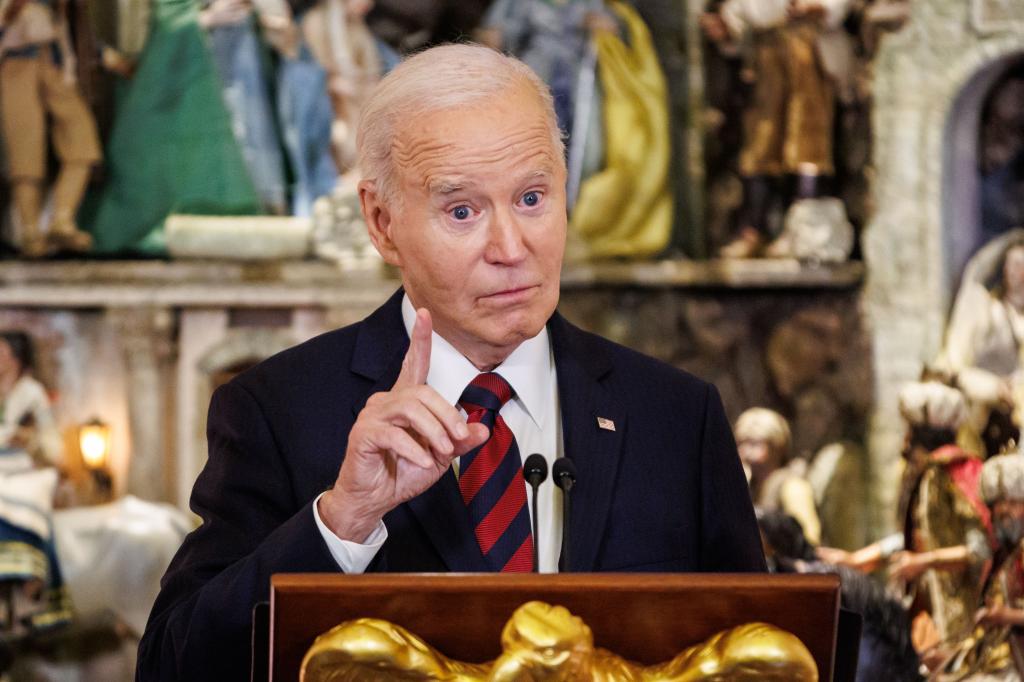President Joe Biden’s recent grant of clemency to approximately 1,500 individuals and pardons to 39 others marks a significant moment in modern presidential history. This single act of clemency surpasses any other in recent times, dwarfing even President Barack Obama’s 330 commutations in 2017. The commutations primarily focus on individuals released from prison to home confinement during the COVID-19 pandemic, a period when prisons became hotspots for the virus, with infection rates reaching alarming levels. This measure reflects a recognition of the unique challenges posed by the pandemic within the prison system and the need to mitigate the spread of the virus. The pardons, on the other hand, were granted to individuals convicted of nonviolent offenses, further emphasizing a focus on rehabilitation and second chances.
Biden’s decision to grant clemency on such a large scale underscores his commitment to a more equitable justice system. He has framed this act as an embodiment of the American ideal of second chances, highlighting the importance of rehabilitation and reintegration into society. The individuals receiving clemency have demonstrated remorse and a commitment to positive change, earning them the opportunity to rebuild their lives and contribute meaningfully to their communities. This action also addresses sentencing disparities, particularly for nonviolent drug offenses, a long-standing concern of criminal justice reform advocates. Biden’s statement accompanying the clemency announcement underscores his belief in the restorative power of second chances and his dedication to ensuring that the justice system reflects fairness and compassion.
The individuals pardoned represent a diverse cross-section of society, including a woman who led emergency response teams, a church deacon working as an addiction and youth counselor, a doctoral student in molecular biosciences, and a decorated military veteran. These examples showcase the potential for rehabilitation and the value of providing individuals with opportunities to contribute to their communities. The pardons and commutations are not isolated incidents but rather part of a broader pattern of clemency actions taken by the Biden administration. These prior actions include pardons for individuals convicted of marijuana possession and former service members convicted under a now-repealed military ban on consensual gay sex.
Beyond the immediate impact on the individuals receiving clemency, Biden’s actions have broader implications for the criminal justice system. His administration has faced pressure from advocacy groups to extend clemency to even larger groups, including those on federal death row. The Attorney General’s pause on federal executions reflects the administration’s ongoing examination of capital punishment. While Biden expressed a desire to end the death penalty during his campaign, concrete action on this front remains pending. The looming return of the Trump administration raises concerns about the resumption of federal executions, given the previous administration’s unprecedented use of capital punishment during the pandemic.
The clemency grants come amidst calls for broader action, particularly for preemptive pardons for individuals involved in investigating the efforts to overturn the 2020 election results. These individuals face potential retribution under a future Trump administration, raising complex questions about the use of presidential pardon power. While Biden has reportedly considered this unprecedented use of the pardon, concerns remain about the precedent it would set. The willingness of individuals to accept such pardons also remains uncertain, as exemplified by Senator Adam Schiff’s rejection of the notion of a preemptive pardon for his role in the January 6th investigation.
The power of presidential pardon and commutation is a significant aspect of the American legal system. A pardon absolves an individual of guilt and punishment, while a commutation reduces or eliminates the punishment without removing the conviction. The end of a presidential term often sees an increase in clemency grants, representing a final opportunity for the president to exercise this power. Biden’s decision to pardon his son, Hunter Biden, for gun and tax crimes, adds another layer of complexity to the discussion surrounding clemency. Despite previous pledges not to pardon his son, Biden justified the decision by citing political influence on the prosecution. While this action drew criticism and raised questions about fairness, it also spurred further advocacy for broader use of clemency powers for other individuals. This controversy underscores the ongoing debate about the appropriate use of presidential pardon power and its impact on public perception of fairness and justice within the legal system.










